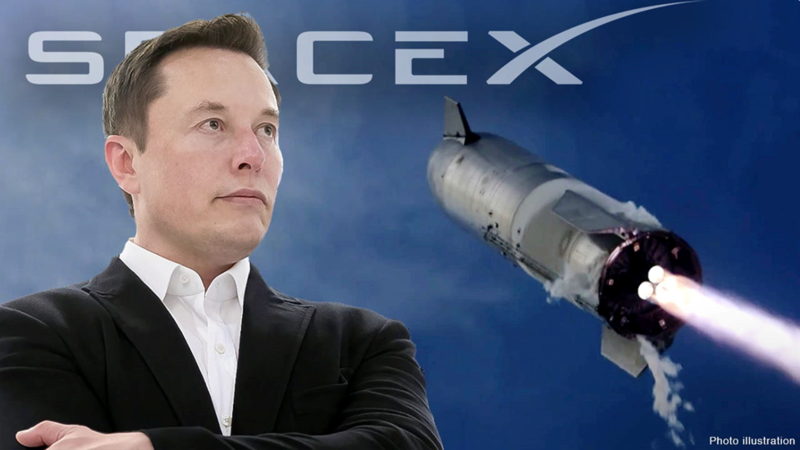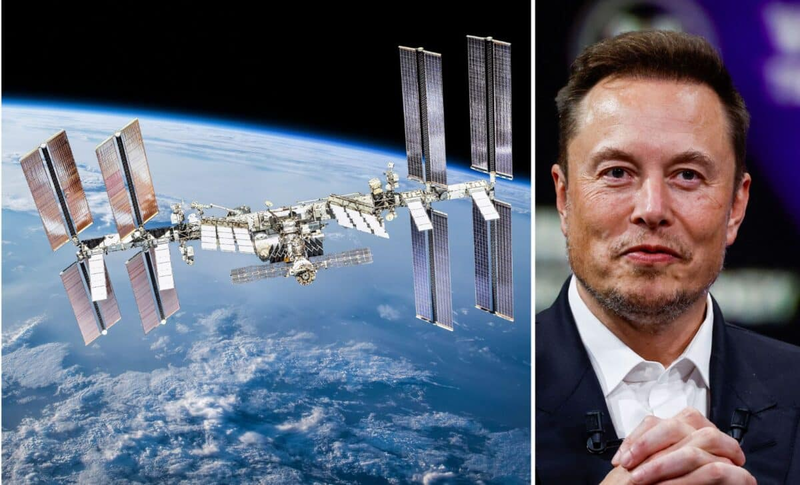Deorbiting the International Space Station: A Radical Proposal with Far-reaching Implications
Input
Changed
The International Space Station Legacy and Musk's Controversial Proposal A Critical Platform with Expensive Upkeep To Deorbit or Not To Deorbit: Determining the ISS' Future

The International Space Station Legacy and Musk's Controversial Proposal
For decades, the International Space Station (ISS) has served as a testament to scientific progress and international collaboration. It has supported the development of technologies for space exploration, provided researchers with a distinctive laboratory for microgravity experiments, and promoted collaboration among the United States, Russia, Japan, Europe, and Canada. However, there is a mounting sentiment that the ISS's days may be numbered, despite its immense contributions over the past few decades. Elon Musk, a space exploration pioneer who has achieved significant success through his company SpaceX, is currently advocating for the urgent deorbiting of the International Space Station. He deems its continued operation to be economically unsustainable and inefficient.
Elon Musk has proposed that the International Space Station be deorbited as soon as feasible, a bold move that has garnered substantial attention. Musk, who is renowned for his visionary ideas regarding Mars colonization and his leadership of SpaceX, has expressed apprehension regarding the exorbitant cost of ISS maintenance and has questioned its scientific significance. Musk contends that the station's ongoing operation is becoming increasingly inefficient, despite its previous role as a critical research platform. From a business standpoint, Musk regards the International Space Station (ISS) as an antiquated and expensive endeavor that may not generate the same returns as it once did, particularly in the context of contemporary space exploration.
His remarks have incited a contentious debate in the space industry and the scientific community itself. While some contend that the ISS has become a symbol of scientific discovery and international collaboration, others, such as Musk, believe that the resources allocated to its maintenance could be more effectively allocated elsewhere.

A Critical Platform with Expensive Upkeep
The International Space Station (ISS) has served as the focal point of human space exploration for more than two decades. The station has contributed to the advancement of technologies for deep space exploration, provided invaluable insights into human health and biology in space, and played a critical role in the comprehension of the impacts of long-term space travel. The scientific knowledge acquired from the International Space Station has been beneficial to both space research and traditional industries on Earth, including medicine, agriculture, and materials science.
Nevertheless, the International Space Station is not without its challenges. The station has encountered a variety of technical issues over the years, including leakage and equipment malfunctions, all of which necessitate costly repairs. In low Earth orbit, the International Space Station is subject to the continuous wear and tear of operating, where it is exposed to harsh radiation, micrometeoroids, and the debris that perpetually orbits the planet.
Additionally, the cost of maintaining the International Space Station has increased. The ISS has been the subject of over $100 billion in expenditures by the U.S. government alone since its inception. The costs of maintaining the station and its missions continue to escalate, with NASA's annual budget operating in the billions. International partners such as Japan and Russia contribute their own financial resources to support the ISS's ongoing operation, in addition to NASA's investment.
Despite the controversial nature of Musk's proposal to deorbit the ISS, it is crucial to acknowledge that the station's deorbiting is already scheduled for the early 2030s. NASA and its international partners have long recognized that the ISS's operational lifespan would ultimately expire. The space station was not intended to remain in orbit indefinitely. The station's structural integrity will inevitably deteriorate as it continues to age, as it has endured the physical wear and tear associated with being in space over time.
In reality, the International Space Station is already exhibiting symptoms of aging. NASA and the Russian space agency Roscosmos have recognized that the station is experiencing persistent issues, such as leaks, pressure reductions, and cracks. The ISS will eventually be unable to safely support ongoing experiments or accommodate astronauts due to the increasing technical challenges.
The ISS will ultimately burn up upon re-entry into Earth's atmosphere, as Musk has noted. Deorbiting the station will presumably entail a controlled descent into the Pacific Ocean, where it will be disassembled and dissolved. NASA and its partners will work to transition to newer space exploration platforms, including the Artemis program and commercial space stations developed by private corporations, over the next few years. This process will happen.

To Deorbit or Not To Deorbit: Determining the ISS' Future
Elon Musk's pragmatic approach to space exploration is the foundation of his recommendation to deorbit the ISS as soon as feasible. Musk has long argued for the allocation of resources to ambitious initiatives that will establish the foundation for humanity's future in space, including the colonization of Mars. He is of the opinion that the funds currently allocated to the maintenance of the International Space Station could be more effectively allocated to the development of technologies that will facilitate more in-depth exploration and establish a sustainable human presence beyond Earth.
From Musk's perspective, the optimal allocation of taxpayer funds may not be the continuation of the ISS's resource expenditures, particularly when it has already exceeded its useful life. Musk advocates for the redirection of these funds to more forward-thinking space initiatives, such as the development of technologies for interplanetary travel or the establishment of a permanent human presence on the Moon, rather than perpetuating the life of a station that was not intended for infinite operation.
Additionally, Musk's advocacy for deorbiting the International Space Station is consistent with his comprehensive perspective on space exploration as a business enterprise. Musk has illustrated that space exploration can be both commercially viable and cost-effective through SpaceX. Musk's conviction that space exploration should not only exceed the limits of human capability but also generate substantial economic benefits is illustrated by the Falcon Heavy rocket's launch, the Starship spacecraft's development, and the Starlink satellite constellation's success.
Although Musk's viewpoint is influenced by his business acumen and his vision of a future on Mars, there are those who contend that prematurely deorbiting the ISS would be a blunder. The International Space Station (ISS) has been a critical research platform for over two decades, and its substantial contributions to science and technology are difficult to ignore.
For instance, the effects of microgravity on cardiovascular health, muscle atrophy, and bone density loss have been critical to understanding how human bodies respond to the challenges of long-term space travel, as demonstrated by experiments conducted on the International Space Station. These discoveries are indispensable for the future of space exploration, particularly in the context of Mars missions, which will necessitate astronauts to endure prolonged periods of space travel.
Additionally, the International Space Station has played a critical role in the advancement of research in various disciplines, including medicine, agriculture, and materials science. New technologies and medical treatments, such as more efficient solar panels, advanced water purification systems, and enhanced cancer therapies, have been developed as a result of the data collected from space experiments. Furthermore, the International Space Station has facilitated collaboration between scientific communities and space agencies from various countries, thereby enhancing international relations and advocating for the peaceful utilization of outer space.
The future of space exploration and the allocation of resources are significant concerns that are raised by Elon Musk's recommendation to deorbit the International Space Station as soon as possible. Although his proposal may appear premature to some, it is in accordance with his pragmatic approach to space exploration, which prioritizes cost-effectiveness and efficiency.
The ISS has been a monumental accomplishment in the annals of space exploration, but its future is currently uncertain. The station is aging, as Musk notes, and the costs associated with its prolonged operation may not be justified. Musk's comments undoubtedly underscore the broader discourse regarding the manner in which humanity should approach the subsequent phase of space exploration, regardless of whether Musk's vision for a post-ISS space exploration landscape will be realized.
Ultimately, the decision to deorbit the ISS will be contingent upon a variety of factors, such as the evolving landscape of space exploration, international cooperation, and scientific priorities. Musk's request to transcend the International Space Station (ISS) may indicate a change in the manner in which space exploration is conducted in the years ahead; however, the ISS remains an indispensable platform for international collaboration and scientific research.
In the end, the question may not be whether the ISS should be deorbited, but rather how humanity can most effectively utilize its resources to guarantee that the future of space exploration is as ambitious, innovative, and efficient as possible.





















